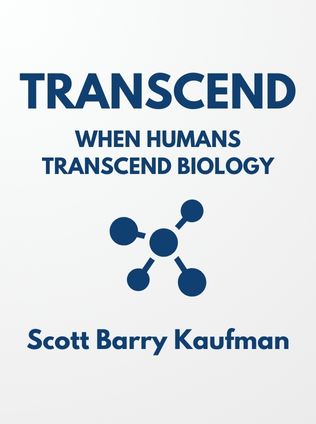
Transcend
When Humans Transcend Biology
By Scott Barry Kaufman
Published 09/2005
About the Author: Scott Barry Kaufman
Scott Barry Kaufman, a renowned psychologist, is celebrated for his extensive work in the fields of humanistic psychology and self-actualization. He has redefined traditional psychological concepts by blending them with modern science, particularly through his research on intelligence, creativity, and the potential for human growth. Kaufman's approach is deeply rooted in the teachings of Abraham Maslow, but he expands on them by incorporating the latest findings from neuroscience and psychology, offering a fresh perspective on what it means to fulfill one’s potential.
Kaufman's passion for understanding the human condition goes beyond academic study; it is personal. His own experiences with learning disabilities and his journey to self-discovery have profoundly influenced his work. This personal connection allows him to approach psychology with empathy and a genuine desire to help others realize their own potential.
Main Idea of "Transcend"
"Transcend" by Scott Barry Kaufman is a deep exploration of human potential and the journey toward self-actualization. Kaufman revisits and revitalizes Abraham Maslow's famous hierarchy of needs, offering a contemporary interpretation that is more aligned with modern psychological science. The book challenges the conventional representation of Maslow’s hierarchy as a pyramid and presents a more dynamic model that emphasizes the fluidity of human needs.
Kaufman introduces the concept of transcendence as the ultimate goal beyond self-actualization, where individuals not only realize their full potential but also contribute to something greater than themselves. This book is a guide to understanding and fulfilling our basic and growth needs, ultimately leading to a life of purpose, connection, and transcendence.
Table of Contents
- Introduction: Revisiting Maslow's Hierarchy
- The Foundations of Humanistic Psychology
- The Hierarchy of Needs: A New Perspective
- Security Needs: Building a Stable Foundation
- Growth Needs: The Path to Self-Actualization
- The Need for Transcendence: Beyond Self-Actualization
- Transcendent Experiences: The Doorway to a Higher State
- Living a Transcendent Life: Practical Steps
- Conclusion: The Future of Human Potential
Introduction: Revisiting Maslow's Hierarchy
In the introduction, Kaufman sets the stage by revisiting Abraham Maslow's famous hierarchy of needs, often depicted as a pyramid. However, Kaufman argues that this representation oversimplifies Maslow's ideas and does not fully capture the complexity and fluidity of human needs. Kaufman reintroduces Maslow's concept in a way that reflects modern psychological science, emphasizing that human needs are not rigidly hierarchical but are dynamic and interdependent.
The Foundations of Humanistic Psychology
Humanistic psychology emerged as a response to the limitations of behaviorism and Freudian psychoanalysis, both of which presented a rather bleak view of human nature. Kaufman explains that humanistic psychology, led by thinkers like Maslow, Carl Rogers, and others, focuses on the positive aspects of humanity—our potential for growth, creativity, and self-awareness. This approach is based on the belief that humans are inherently good and capable of making conscious choices that lead to personal fulfillment and societal betterment.
Sign up for FREE and get access to 1,400+ books summaries.
You May Also Like
The Subtle Art of Not Giving a F*ck
A Counterintuitive Approach to Living a Good Life
By Mark MansonRich Dad Poor Dad
What the Rich Teach Their Kids About Money - That the Poor and Middle Class Do Not!
By Robert T. KiyosakiHow To Win Friends and Influence People
The All-Time Classic Manual Of People Skills
By Dale CarnegieFreakonomics
A Rogue Economist Explores the Hidden Side of Everything
By Steven D. Levitt and Stephen J. Dubner



















